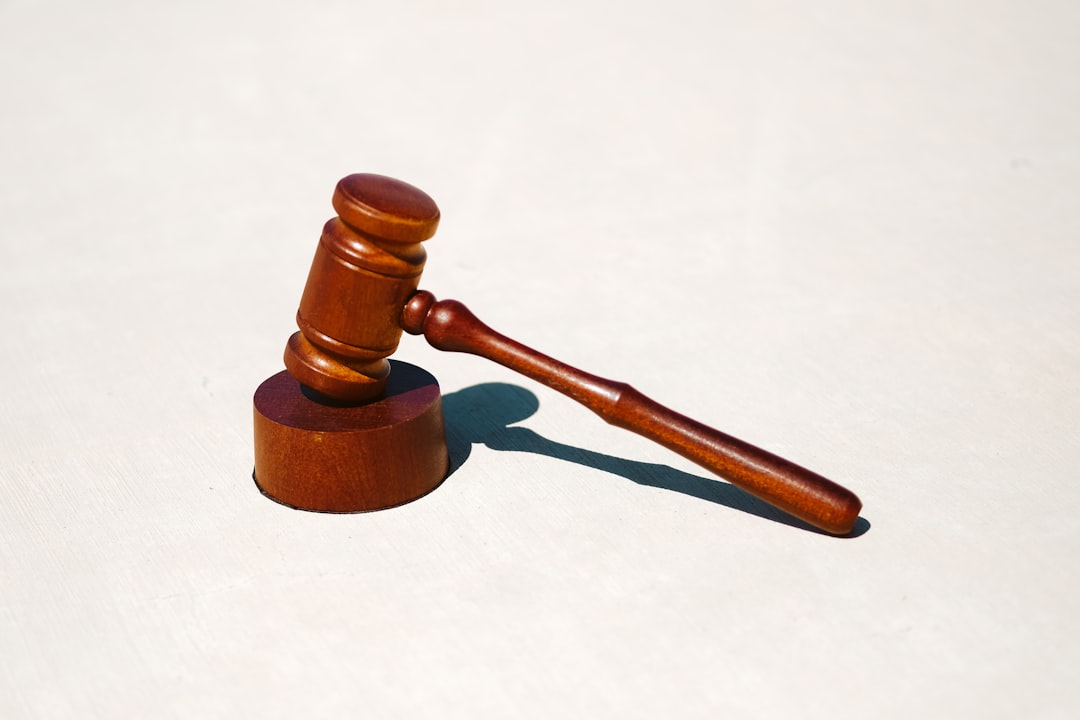Philadelphia businesses engaging in telemarketing and email marketing must comply with TCPA regulations to avoid legal issues. Hiring a local TCPA lawyer ensures proper consent acquisition, opt-out mechanisms, record-keeping, and adherence to CAN-SPAM Act, thereby protecting against violations and building consumer trust.
Navigating the Telephone Consumer Protection Act (TCPA) in email marketing is crucial for businesses in Philadelphia. This comprehensive guide delves into the best practices for compliance with local regulations. We explore essential aspects such as understanding TCPA restrictions, complying with campaign requirements, and ensuring consumer consent through opt-in mechanisms. Additionally, we provide insights on legal implications, defense strategies, and do’s/don’ts to protect your business from costly violations. For expert advice, consider consulting a lawyer specialized in TCPA Philadelphia.
Understanding TCPA Regulations in Philadelphia

In Philadelphia, as in many jurisdictions across the U.S., the Telephone Consumer Protection Act (TCPA) plays a pivotal role in regulating telemarketing and consumer privacy. This federal law restricts businesses from making automated calls or sending text messages to consumers without their prior consent. For email marketing professionals, understanding these regulations is crucial when targeting Philadelphia residents.
Philadelphia’s local laws further tighten the screws on TCPA compliance. Marketers must be adept at obtaining express written consent for email campaigns and have a clear opt-out mechanism in place. Seeking guidance from an experienced lawyer for TCPA in Philadelphia can help businesses steer clear of costly violations and ensure their marketing efforts remain compliant and effective.
Compliance Essentials for Email Marketing Campaigns

In the realm of email marketing, navigating the Telephone Consumer Protection Act (TCPA) is paramount to ensuring compliance and avoiding legal pitfalls. A lawyer for TCPA in Philadelphia can offer invaluable guidance on best practices, given the city’s significant business activity. Key essentials include obtaining explicit consent from recipients—capturing clear agreement through opt-in mechanisms—and honoring requests to stop sending emails immediately.
Additionally, understanding the definition of an automated dialing system (ATS) is crucial. Using such systems for email campaigns may trigger TCPA regulations. Businesses must also meticulously maintain records of customer consent and opt-out choices. Regularly reviewing and updating privacy policies and ensuring compliance with the CAN-SPAM Act are further steps to foster responsible email marketing practices in Philadelphia and beyond.
Do's and Don'ts of Contacting Consumers

When navigating the Telephone Consumer Protection Act (TCPA) in email marketing, understanding the do’s and don’ts of contacting consumers is crucial. Always obtain explicit consent from recipients before sending promotional emails. A lawyer for TCPA Philadelphia can guide you in securing valid opt-in agreements to ensure compliance. Never send emails to numbers on the Do Not Call Registry or those who have not explicitly agreed to receive your communications.
On the don’ts list, avoid using deceptive subject lines that misrepresent the content of your email. Be transparent about the purpose of your message and provide a clear opt-out mechanism, such as an unsubscribe link. Don’t harass consumers with repeated attempts to deliver messages if they have opted out. Remember, adhering to these practices not only helps you stay within legal boundaries but also fosters trust and strengthens your email marketing campaign’s effectiveness.
Opt-In Requirements and Validation Techniques

In the context of email marketing, understanding and adhering to the Telephone Consumer Protection Act (TCPA) is paramount, especially in a bustling metropolis like Philadelphia. One critical aspect is ensuring strict opt-in requirements. Subscribers must explicitly consent to receiving promotional emails, often through a clear checkbox on your sign-up forms. This not only complies with TCPA but also fosters trust with your audience.
Validation techniques play a pivotal role in maintaining compliance. Implementing robust data validation processes ensures that email addresses are accurate and active, minimizing bounce rates and enhancing the effectiveness of your campaigns. A reputable lawyer for TCPA in Philadelphia can guide you on the best practices to implement these requirements seamlessly while staying within legal boundaries.
Legal Implications and Defense Strategies

The Telephone Consumer Protection Act (TCPA) is a federal law designed to protect consumers from unwanted telephone solicitations and telemarketing calls. In the context of email marketing, compliance with TCPA is crucial to avoid legal implications. A lawyer for TCPA in Philadelphia can guide businesses on best practices to ensure they stay within regulatory limits.
Defending against TCPA lawsuits can be complex and costly. Effective strategies include obtaining explicit consent from recipients before sending marketing emails, maintaining detailed records of consent, and providing a clear and straightforward opt-out mechanism. Businesses should also regularly review and update their privacy policies to reflect current compliance standards. Consulting with a Philadelphia lawyer specializing in TCPA law can help businesses implement robust defenses, mitigate risks, and maintain compliance, thereby safeguarding their reputation and financial health.






